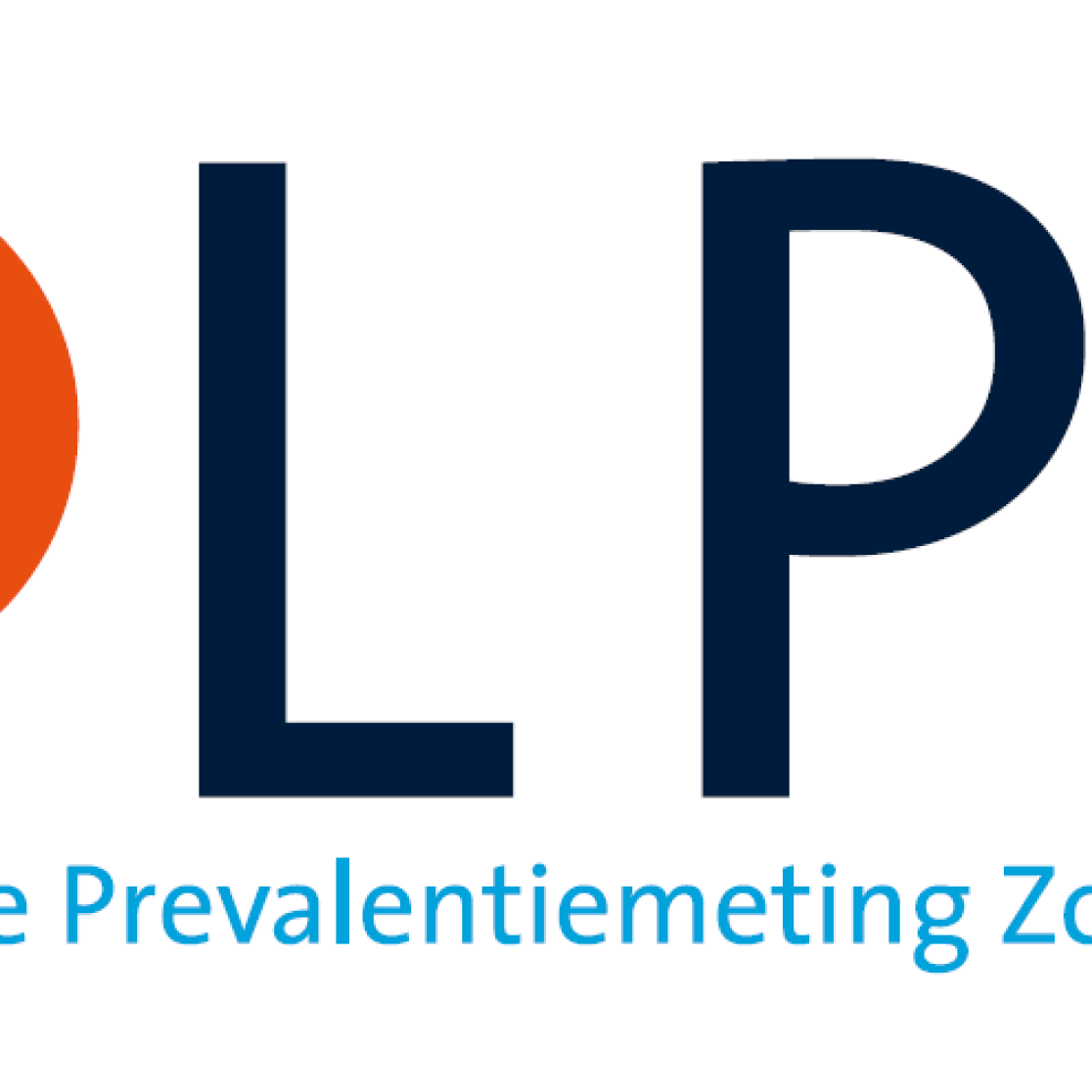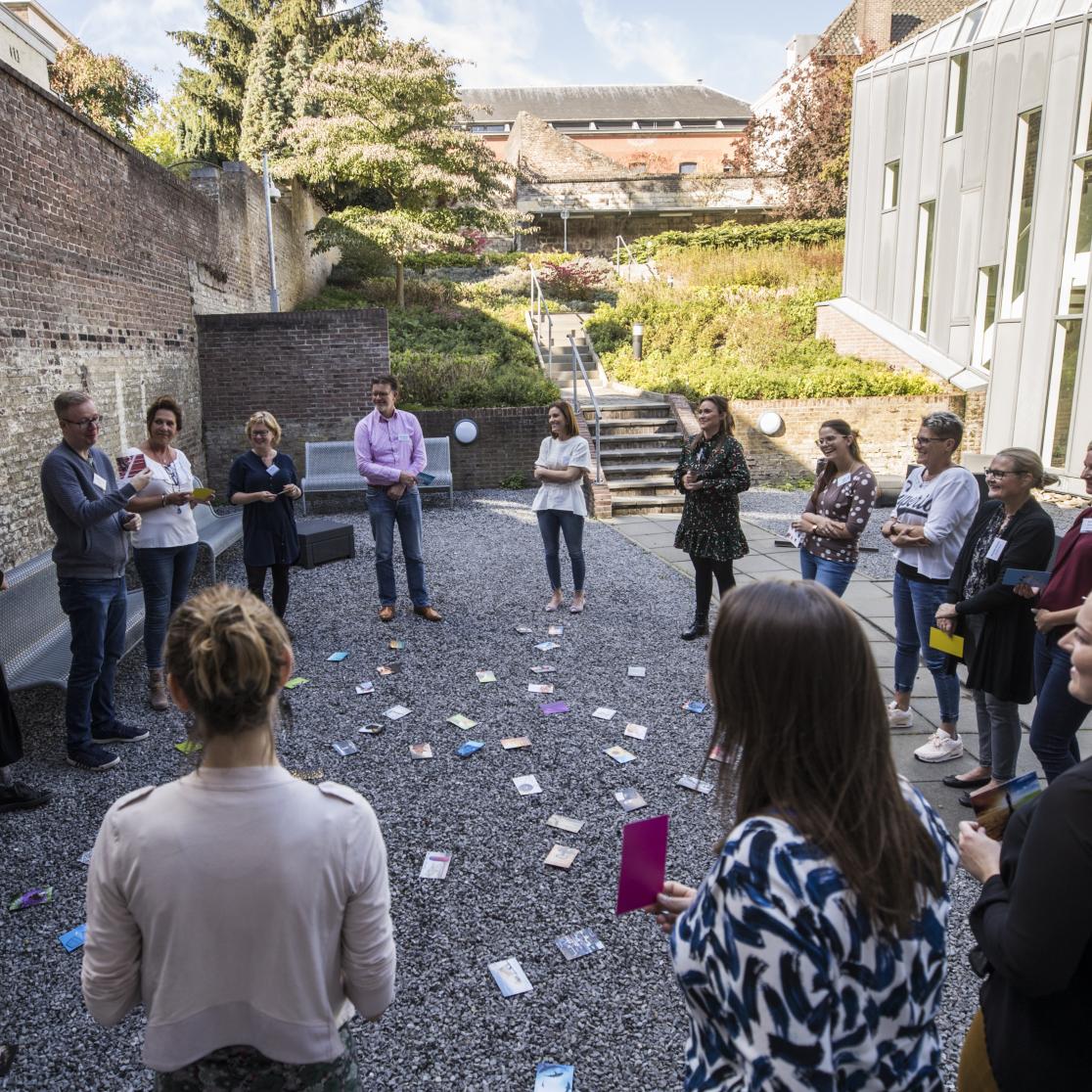A thermometer for healthcare organisations

Quality of care for older people
Both hard and soft data are needed to measure the quality of life, care and work in the field of care for older people. The Dutch National Prevalence Measurement of Care Problems (LPZ) measures the prevalence of care problems such as pressure ulcers, pain or incontinence in healthcare institutions. Meanwhile, the qualitative method Ruimte voor Zorg (RvZ) collects experiences from residents as well as their relatives and care providers in order to find out what really matters to residents. Both projects are conducted from the Living Lab in Ageing and Long-Term Care.
Involved research line
- Ageing and Long-Term Care
Irma Everink works at Maastricht University as a postdoctoral researcher and leader of the LPZ project. “LPZ is a relatively simple and reliable measuring instrument that quickly provides insight into the quality of basic care provided by organisations, down to the patient level. LPZ detects care problems early, allowing healthcare organisations, locations, departments and teams to take appropriate measures.”
Involved Living Lab
Expanded and refined
LPZ was first developed in Maastricht in 1998. “My predecessor Ruud Halfens is the founder of the project”, says Irma. “It began as an instrument to measure the prevalence of pressure ulcers in healthcare organisations. From there, it was continuously expanded, refined and improved in cooperation with the participating organisations. LPZ now measures the prevalence of not only pressure ulcers, but also malnutrition, incontinence, pain, falls, restraints and pain, all on one specific day each year. We’re currently looking into incorporating other aspects of quality of care, such as patient satisfaction or employee satisfaction. In addition to nursing homes, we have hospitals and home care organisations participating as well. And LPZ is expanding internationally: it is used consistently in five countries and occasionally in eleven countries worldwide.”
Accessible
“We want LPZ to be as accessible as possible”, explains Irma. “That’s why we’ve made a number of technical improvements, like linking to electronic patient records and adding dashboards to enable quick, digital feedback. The participants can start acting on the results immediately after the measurement has been carried out. As a large number of institutions participate in LPZ, they can also compare results amongst themselves. This often leads to interesting new insights and lessons.
“We meet with an international research group four times per year. LPZ provides researchers with valuable insights into new developments in the field of care problems and how these problems are connected. We use this knowledge to provide the participating organisations with the right tools to help them optimise the quality of their basic care.”

Involved partners
Dutch National Prevalence Measurement of Care Problems
- Bern University of Applied Sciences
- Istanbul University
- Medical University of Graz
- Nottingham University
- Verenso, the Dutch Association of Elderly Care Physicians
- V&VN, Dutch national professional organisation for nurses
- Dutch/Swiss/UK/German nursing homes, home care organisations and hospitals
Qualitative method
Whereas LPZ provides hard data, the qualitative method Connecting Conversations (Ruimte voor Zorg) investigates nursing home residents’ perceptions of care and how family members and staff members think residents perceive their care. The method involves conversations with all three parties separately. It has only six questions, allowing the conversations to be as open as possible and leaving a lot of room for the parties involved to share their thoughts and experiences.
Unbiased
Hilde Verbeek, professor of Long-Term Care Environments and scientific director of the Living Lab in Ageing and Long-Term Care South Limburg, explains, “A fundamental aspect of the method is holding one-on-one conversations with each of the three parties within a triad: a resident, their family, and staff. These triad conversations are held by a specially trained employee of another organisation. Their independence is essential; everyone should feel like they can speak freely. Outsiders are impartial and unbiased because they don’t know the people and departments involved. The method also gives health professionals a glimpse behind the scenes at each other’s organisations, creating a learning network.”
Appreciative inquiry
Participants complete a training course developed by UMIO, the executive branch of the Maastricht University School of Business and Economics. “We chose UMIO because they’re experts at innovation and leadership skills. Participants are taught appreciative inquiry techniques in the course. Rather than asking what isn’t going well, they will ask, ‘What is the most positive experience you have had here?’ We use appreciative inquiry because the answers to these kinds of questions will tell us what people find important, so that we can look into reinforcing these positive experiences. Of course, there’s also room for people to share any negative experiences. The triads are selected at random to avoid bias. To get a clear picture of the situation, we need to hold three to five triad conversations in each department.”
Hilde explains, “We’ve developed an app with the questions. It can be used to record the conversations and the answers can be typed into the app. It’s linked to a digital portal where everything is reported and feedback is provided. For example, we check whether the parties in the triad agreed with each other. Did they mention the same important event? This narrative technique prompts people to tell stories that can teach us a lot.”
Involved partners
Connecting Conversations
- Cicero Zorggroep
- CodeART
- CZ Health Insurance
- Envida
- Gilde Zorgcollege
- Health and Youth Care Inspectorate
- LOC
- MeanderGroep
- Ministry of Health, Welfare and Sport
- Mosae Zorggroep
- National Health Care Institute
- School for Business and Economics, Maastricht University
- Sevagram
- UMIO
- V&VN, Dutch national professional organisation for nurses
- Vista College
- Vivantes Ouderenzorg
- Zuyderland
- Zuyd University of Applies Sciences
A good conversation
Connecting Conversations was developed as part of the 4year PhD research of Katya Sion. After three years into the project, a lot has already been achieved. “We built a valid, fully operational instrument from scratch”, says Hilde. “We receive requests from all over the Netherlands. We’ve trained about thirty people, from home care assistants to highly trained nurses, policy advisers and caregivers. All of them are positive about Connecting Conversations, although organising the conversations can be difficult. They get a lot out of it. They enjoy sitting down for a good conversation and it also makes them reflect on their own practice. Our intention is to train many more people.”
Commitment
The partners in the project are the seven healthcare organisations that are part of the Living Lab in Ageing and Long-Term Care South Limburg as well as vocational (mbo) and professional (hbo) education programmes. These partners co-funded the project, along with Dutch health insurance provider CZ. “It shows the commitment of the field”, says Hilde. “We really did this together. The follow-up study to this project, which has received a grant from the Netherlands Organisation for Health Research and Development (ZonMw), will take it a step further and investigate how teams and organisations can use the results to learn and improve. In the future, I would love to bring hard data (LPZ) and soft data (Connecting Conversations) together in one dashboard.”
Text: Margo van Vlierden
Translation: Maud Bovelander
More information:
LPZ
Connecting Conversations

Training Connecting Conversations
Picture: Harry Heuts